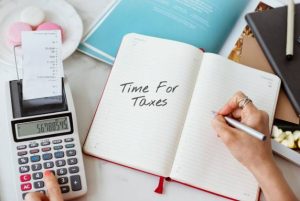A tax field audit or investigation is an investigation process conducted by the tax department on a taxpayer or business to ensure that the taxpayer complies with the tax law and pays the tax due in accordance with the regulations. When the IRD suspects irregularities or tax understatements, they may initiate such a process.
When conducting a tax field audit or investigation, the IRD will normally:
- Check the business records and accounting accounts of the taxpayer.
- Visit the taxpayer’s place of business to learn about the operation of the business.
- Confirm the authenticity of the information declared in the taxpayer’s tax return.
- Analyze whether there is tax evasion or deliberate tax evasion.
An audit or investigation by the IRD may involve assessing the tax situation for the previous year and imposing taxes and penalties due based on the findings.
The reasons for the IRD to conduct a tax field audit or investigation may include, but are not limited to, the following:
- Type of business or transaction:
– Proprietor of a sole proprietorship
– Cash-based transactions
– Rent out the property for rental income
– Purchase of movable or immovable property with large amounts of cash
- Other potential causes:
– Persistent non-filing or late filing of tax returns
– Filing a tax return that is incorrect or inconsistent with financial information
– Failure to properly maintain business or accounting records
– The audit report in the financial statements of a legal entity contains a qualified opinion of material impact
– The percentage of turnover or profit of the business is unreasonable compared to that of the same industry
– The owner or its affiliates are involved in a large amount of borrowings or changes in current accounts
– Making large payments to overseas people
– Receiving inconsistent messages or reports
– Random spot checks
These circumstances may be of concern to the Inland Revenue Department (IRD) and may lead to an on-site audit or investigation. If you or your business are involved in one of the above situations
When the IRD decides to conduct a formal audit or investigation of you or your business, it will generally give notice to you or your business by written notice. Here are some possible steps and signs that you may have been selected for a site audit or investigation:
- Written Notice: You receive a written notice from the Inland Revenue stating that you or your business will be audited or investigated, specifying the scope and purpose of the audit or investigation.
- Request for Documents: The IRD may require you to provide certain documents, books of account or other relevant information for audit or investigation.
- Arrange a meeting: The IRD may request to arrange a meeting to further discuss your tax situation and the information you provide.
- Desk Audit: The audit may begin with a desk audit, where you may be asked to provide information about each income or expense claimed on your tax return.
- Serious tax issues: If more serious tax issues are identified during the audit process, such as material omissions or other irregularities, they may be converted to an on-site audit or investigation.
If you receive an official notice from the tax office that you will be audited or investigated, this indicates that you have been selected for the audit.
During the course of a tax field audit or investigation, the tax office will make tax adjustments based on their findings and the data you provide, which may result in you being required to pay additional taxes. Supplementary tax calculations are usually based on income or profits that you underreported or omitted in your tax return.
The calculation of the supplementary tax may involve complex tax technical issues and may require multiple rounds of meetings and discussions. The IRD will take into account your actual income or profits when calculating the supplementary tax and compare it with the data you originally declared to determine the discrepancy and the corresponding tax.
When you have undergone a tax field audit or investigation, the exact amount of supplementary tax depends on your individual circumstances and the results of the investigation by the Inland Revenue Department. It is advisable to seek the advice of a professional tax advisor in this case to ensure that you have a clear understanding of the calculation and payment of taxes and are able to respond effectively to the corresponding financial requirements.




